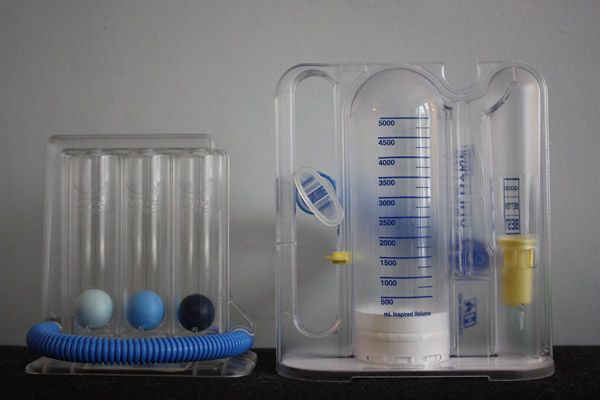
My next post was going to be about the skincare I won from Sephora on Twitter, or about the long-lasting Japanese gel nail manicure I had, but then I was struck with appendicitis at the beginning of the month. Usually, when I get sick to the point where I need to be hospitalized, it's around my birthday, so my present from my body to myself came a little early. (Don't get me started on what I believe to be the Bang Curse--every time I've been very ill post-college, it turns out I'd just gotten bangs!) So instead, here's a picture of my collection of breathing implements I've amassed, which will hopefully stop immediately! I do not recommend starting a collection. The first was from the mysterious lung collapse a few years ago. The second was from this appendectomy--they told me to use this to regain my lung's strength after general anesthesia and to prevent pneumonia. I like how my ailments are all mysterious and no doctor ever attempts to even investigate a cause. It's also nice (and more important) how I don't suffer in the long term as a result of them; the only evidence left behind are light scars on the torso.
I don't know why, but I feel like writing briefly about my experience here. Appendicitis is cripplingly painful; not even morphine could ease my pain. When the ER nurse told me they were giving me morphine and that the pain wouldn't go away until they removed the useless organ, I didn't fear surgery or general anesthesia. I just wanted the appendix out of my life. But what was a bit jarring to me about surgery was being brought into the bright, spacious operating room. My immediate thought was that it looked just like in the movies or TV shows. They hadn't administered anything to me yet so I was fully conscious, which seemed a desired state so that I could announce clearly my name, DOB, and what I was there for. I had never experienced surgery before; all I've experienced are a bunch of residents and young doctors coming to see me in my room, sometimes the chief of their staff (i.e., an older doctor, usually in a suit) dropping by for a special visit. When the many doctors come to see me in the room, there is at least one doctor who does all the talking, and others observe. Sometimes, when different doctors ask different questions, it's clear to me that they all have a general idea of what the problem is, but that each person might have a slightly different idea of what the details are or would defer to the speaking-doctor. They'll then get word from their "chief" or whoever is highest in the hierarchy; they may (or may not!) pass that down to my nurses and to me; but that higher word confirms the details--the diagnosis, treatment, and followup care. This is what I'm used to. But in the operating room--and I realize this is what you would hope and expect--I saw that every single person in there is on the exact same place of the same page. Obviously, the surgeon is the director of everything. And of all the doctors and residents and med students I met, only one of them ended up in the OR with the surgeon. But when I was in there and conscious, I remember that the nurse \seemed to oversee or manage a lot of things. I appreciated it, or found comfort in it. After that, I only remember being the breathing mask already in place and being told the anesthesia would kick in. But I was just so struck by how different things are in the OR compared to the ER room or the hospital rooms, even if I was only awake to observe things in the OR for a couple of minutes.
So anyway, it was interesting to see the dynamics of medical hierarchy in a slightly different light. As usual, I noticed again how important nurses are as much as doctors; I
always strike gold with nurses. This is a cliche moment, but this is the kind of cliche moment you should want--I have always been and it seems like I continue to be given the best medical staff to help me get back on my feet when something has gone terribly wrong. Appendicitis is a straightforward problem you want to have if you have sharp, crippling stomach pains, rather than, say, some long-term stomach-related disease, but it still requires surgery and thereby general anesthesia. To be able to recover as well as I have been, you need a good support system, both in and out of the hospital. This time, my experience at UIC was near-impeccable. (Sorry, cannot say the exact same of U of C!) I am beyond grateful for each and every person involved, all the way from the ER staff, the transport staff, the nurses, to the
chief and her budding underlings.

